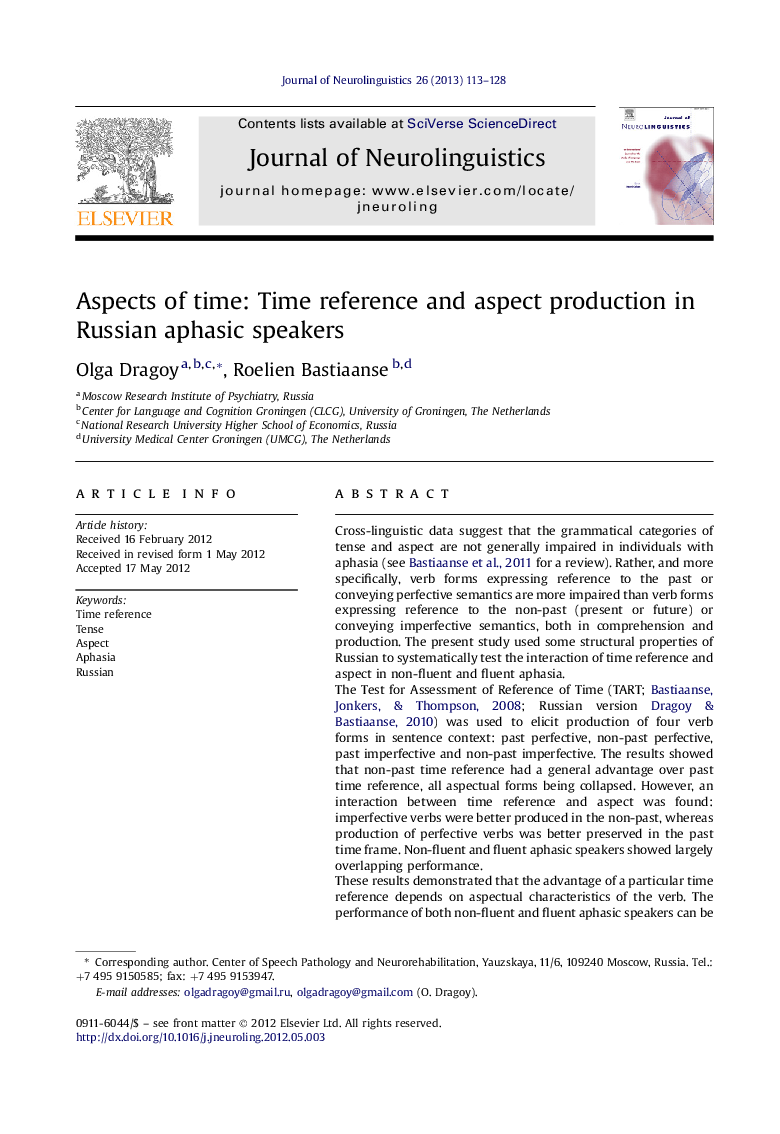| کد مقاله | کد نشریه | سال انتشار | مقاله انگلیسی | نسخه تمام متن |
|---|---|---|---|---|
| 911906 | 918101 | 2013 | 16 صفحه PDF | دانلود رایگان |

Cross-linguistic data suggest that the grammatical categories of tense and aspect are not generally impaired in individuals with aphasia (see Bastiaanse et al., 2011 for a review). Rather, and more specifically, verb forms expressing reference to the past or conveying perfective semantics are more impaired than verb forms expressing reference to the non-past (present or future) or conveying imperfective semantics, both in comprehension and production. The present study used some structural properties of Russian to systematically test the interaction of time reference and aspect in non-fluent and fluent aphasia.The Test for Assessment of Reference of Time (TART; Bastiaanse, Jonkers, & Thompson, 2008; Russian version Dragoy & Bastiaanse, 2010) was used to elicit production of four verb forms in sentence context: past perfective, non-past perfective, past imperfective and non-past imperfective. The results showed that non-past time reference had a general advantage over past time reference, all aspectual forms being collapsed. However, an interaction between time reference and aspect was found: imperfective verbs were better produced in the non-past, whereas production of perfective verbs was better preserved in the past time frame. Non-fluent and fluent aphasic speakers showed largely overlapping performance.These results demonstrated that the advantage of a particular time reference depends on aspectual characteristics of the verb. The performance of both non-fluent and fluent aphasic speakers can be explained in terms of prototypical and non-prototypical matches of time reference and aspectual semantics: perfectives primarily refer to completed, past events while imperfectives prototypically describe ongoing, non-past events.
► Time reference–aspect interaction was tested in Russian aphasic speakers.
► Imperfective verbs are better produced in the non-past.
► Perfective verbs are better produced in the past.
► Aspectual semantics guides time reference choice in non-fluent and fluent aphasia.
► In impaired language processing, Russian aspect is treated as a lexical category.
Journal: Journal of Neurolinguistics - Volume 26, Issue 1, January 2013, Pages 113–128